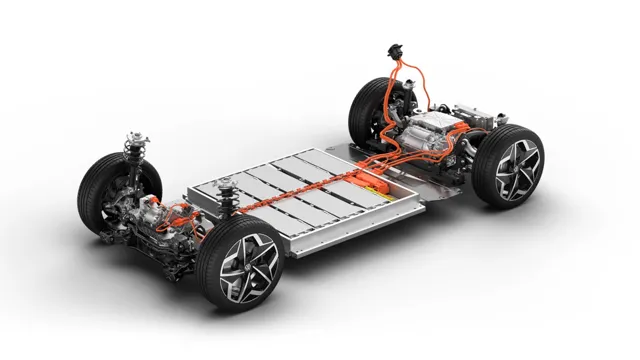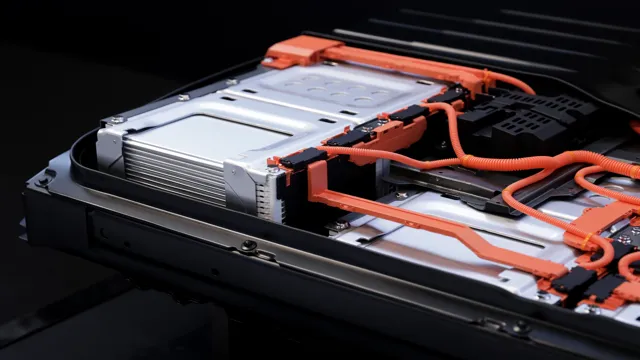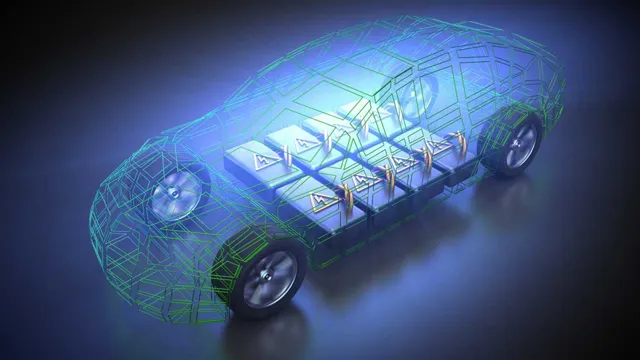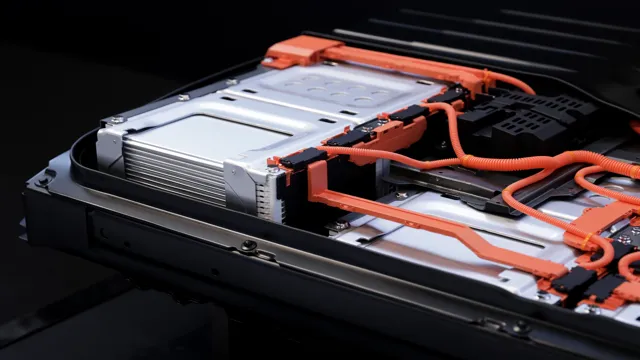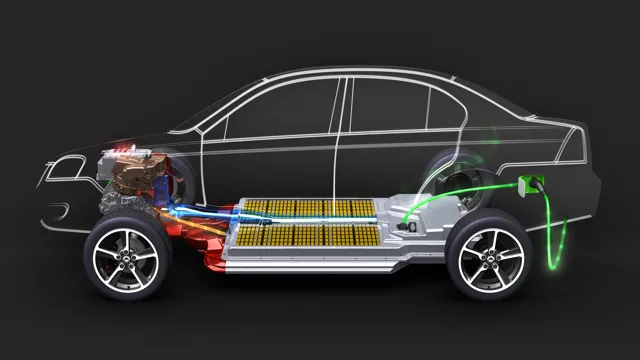Unveiling the Truth Behind Electric Car Battery Capacity: How Far Will You Really Go?
Electric cars have been gaining popularity in recent years, with more and more people opting for this environmentally-friendly mode of transportation. However, one of the major concerns that potential buyers have is the battery capacity of electric cars. How long can they run on a single charge? Can they match the distance range of traditional gas-powered vehicles? In this blog post, we’ll explore the topic of electric car battery capacity and address some common questions and misconceptions.
So buckle up and let’s take a closer look at what’s under the hood of electric cars.
What is battery capacity?
Battery capacity refers to the amount of energy that can be stored in an electric car’s battery unit. This capacity is usually measured in kilowatt-hours (kWh) and can vary depending on the type of electric car and its battery system. The battery capacity determines the driving range of an electric car, as well as its power output and overall performance.
Generally, the higher the battery capacity, the longer the driving range and the more powerful the electric motor. It is important to note that battery capacity is not the same as battery power or charging speed, which are separate factors that affect an electric car’s performance and usage. When considering an electric car, it is important to take into account the battery capacity and how it will fit with your driving needs and habits.
So, while searching for an electric car, the battery capacity of the electric car is a crucial factor that should be kept in mind.
Definition and measurement
Battery capacity is the amount of energy that can be stored in a battery. It is measured in ampere-hours (Ah) and watt-hours (Wh). Simply put, it represents how much power a battery can provide over a certain period of time.
For example, a 1000mAh battery can provide 1000mA of current for an hour or 500mA of current for two hours. It’s important to note that the capacity of a battery depends on various factors such as the chemistry of the battery, temperature, and how it is used. Higher capacity batteries generally have a longer lifespan and can power devices for a longer time.
However, it’s also worth considering how fast a battery can charge and discharge, as this can affect the overall performance and user experience. Overall, battery capacity is a crucial factor to consider when choosing a battery for a specific application, be it a smartphone, laptop, or electric vehicle.
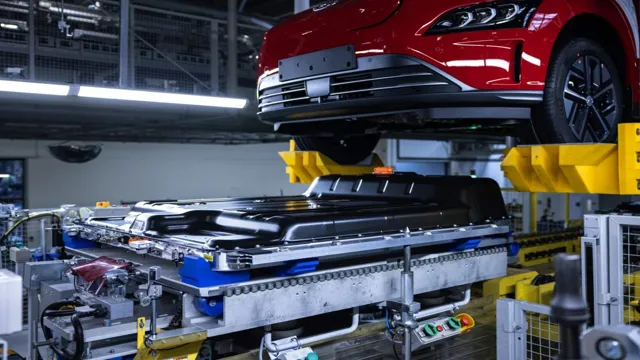
Factors that affect battery capacity
The battery capacity of electric cars is a crucial factor that determines their overall performance and range. There are several factors that can affect the battery capacity of an electric car. One of the most significant factors is the type of battery technology used.
Different battery technologies offer varying levels of performance, reliability, and energy density. Another factor that affects battery capacity is the quality of the manufacturing process and components used in the battery. High-quality manufacturing processes and components can lead to better performance and longer battery life.
Additionally, environmental factors such as temperature, humidity, and altitude can also affect battery capacity. High temperatures can cause batteries to degrade faster, while extreme altitudes can reduce their overall performance. Overall, it is important to understand these factors when selecting an electric car and to choose a model with a battery that is well-suited for the intended use case.
Battery chemistry, temperature, age and usage
Battery capacity can be affected by various factors such as battery chemistry, temperature, age, and usage. The chemistry of the battery refers to the type of materials used in its construction, which can affect its overall capacity. For instance, Lithium-Ion batteries can store more energy compared to Nickel-Cadmium batteries.
The temperature of the battery can also impact its performance; extreme temperatures can either cause the battery to lose charge faster or not to charge at all. Additionally, the age of the battery can result in decreased capacity over time. Continued usage of the battery can also result in reduced capacity.
Understanding these factors can help you determine the best way to maintain and preserve the life of your battery.
Current electric car battery capacities
Battery capacity of electric cars is an important factor in determining how far they can travel on a single charge. Currently, the average electric car battery capacity ranges from around 40 kWh to 100 kWh, though some luxury models offer even higher capacities. This means that the average electric car can typically travel between 100 to 250 miles on a single charge.
However, factors such as driving style, weather, and road conditions can greatly impact the range of an electric car. As technology continues to improve, it is expected that electric car battery capacities will continue to increase, allowing for longer and more efficient journeys. With the increasing demand for electric vehicles, many automakers are investing heavily in battery research and development for longer-lasting and more powerful batteries.
As a result, consumers can expect even more advanced electric vehicles with higher battery capacities in the near future.
Comparison of popular electric cars
When it comes to electric cars, one of the main concerns for potential buyers is the battery capacity. The battery capacity of an electric car dictates how long it can travel on a single charge, and as you might expect, the larger the battery capacity, the further you can travel. Comparing the battery capacities of popular electric cars, we can see that the Tesla Model S currently has the largest battery capacity, at 100 kWh.
This allows for a range of up to 373 miles on a single charge, making it one of the most practical electric cars on the market for long journeys. Other popular electric cars such as the Nissan Leaf and the BMW i3 have smaller battery capacities, with ranges of around 150-170 miles. Of course, the range you require will depend on your driving habits and the type of journeys you typically make.
It’s always good to do your research before making a purchase and consider which electric car will best fit your individual needs.
Graphs and charts showing range and capacity
When it comes to electric cars, battery capacity is one of the most important factors to consider. Graphs and charts can help visualize the range that different electric cars are capable of. Currently, the market is seeing a significant increase in battery capacities, which is great news for both electric car enthusiasts and the environment.
The Tesla Model S, for example, boasts a range of up to 402 miles on a single charge, which is more than double the range of some of the earliest electric cars. Other manufacturers, such as Chevrolet and Nissan, have also made significant strides in improving battery capacity. The Chevrolet Bolt has a range of up to 259 miles, while the Nissan Leaf can travel up to 149 miles on a single charge.
As technology continues to improve, we can expect even more impressive battery capacities in the near future. With these advancements, electric cars are becoming not only a greener option but also a practical and reliable mode of transportation.
Future of electric car batteries
The future of electric car batteries is looking incredibly promising. One of the most important factors in the success and mass adoption of electric vehicles is the battery capacity. Over the years, we have seen significant improvements in battery technology, resulting in an increase in the range of electric vehicles.
This trend is expected to continue, with researchers and manufacturers working tirelessly to improve battery technology. We can expect to see higher energy density batteries, which will result in a more extended range for electric vehicles. These batteries could also be smaller and lighter, making them more accessible to fit into electric cars while maintaining performance.
Moreover, advancements in battery chemistry, such as solid-state batteries, could eliminate some of the current battery issues, including overheating and slow charging times. The battery capacity of electric cars is expected to increase drastically in the coming years, making them more practical and cost-effective transportation options.
Advancements in technology and predictions
The future of electric car batteries is looking bright thanks to advancements in technology and ongoing research. Currently, the biggest concern for all-electric cars is the range they can cover on a single charge. However, engineers and scientists are working tirelessly to develop new batteries that can hold more charge and last longer.
With solid-state battery technology on the horizon, electric vehicles could potentially match, or even surpass, the range of traditional gas-powered cars. Another promising advancement in battery technology is the use of silicon anodes, which can dramatically increase the energy density of batteries. These advancements can translate into a bigger punch from your preferred electric vehicle, with longer driving ranges, better performance, and faster charging times to improve your overall driving experience.
It’s like upgrading from a handheld calculator to a supercomputer! The electric revolution is just around the corner, and the future of electric car batteries will soon be powered by exciting and innovative technologies that promise to revolutionize the industry.
Implications for consumers and the auto industry
As electric cars continue to gain popularity, the future of their batteries is a topic of great interest to both consumers and the auto industry. The advances in battery technology have allowed for longer ranges, shorter charging times, and lower costs. But the question on everyone’s mind is: what’s next? Battery technology has already come a long way, but there’s still room for further innovation.
With research into solid-state batteries and alternative materials, we could potentially see even better performance and longer lifetimes. This could mean even more convenience for electric car owners and could push more people to make the switch from gas-powered cars. As the demand for electric cars rises, the auto industry will need to adapt and invest in the research and development of advanced battery technology to stay ahead of the curve.
Conclusion and takeaways
In conclusion, the battery capacity of an electric car is like the fuel tank of a traditional gas car – the bigger the tank, the longer the distance you can travel. However, unlike gas cars, the battery capacity of an electric car also determines its speed and acceleration capabilities. So, don’t underestimate the power of a good battery – it can make all the difference in whether you win the race to the next charging station or not!”
FAQs
What is the average battery capacity of an electric car?
The average battery capacity of an electric car is around 60 kWh, but it can vary depending on the make and model.
How does the battery capacity impact the range of an electric car?
The battery capacity directly impacts the range of an electric car. A higher battery capacity means a longer range.
Can you upgrade the battery capacity of an electric car?
It is possible to upgrade the battery capacity of some electric cars, but it can be expensive and may void the warranty.
How long does it take to charge the battery of an electric car with a higher capacity?
The time it takes to charge an electric car with a higher battery capacity can vary, but it typically takes several hours to fully charge using a regular home charging outlet. However, faster charging options like DC fast charging can significantly reduce charging time.
